We've gone Pink to help fight Breast Cancer.
Use code "BREAST" and we'll Donate $50 to National Breast Cancer Foundation
Main Menu
Petsy Breed Pages
The world’s most comprehensive information on the ...
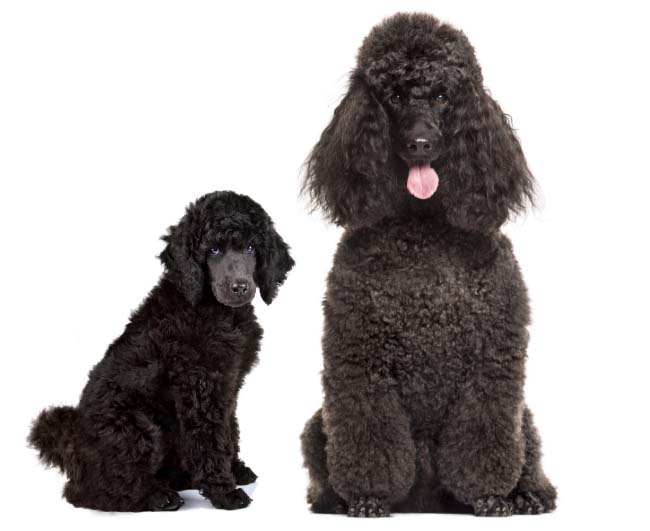
$700.00 - $5000.00
Pudelhund Caniche
Medium
Non-Sporting Group
Long
Extra high
Extra high
10 to 18 years

Would you like to know what it would cost to insure an Standard Poodle? Find out by getting a free quote, with petsy pet insurance.





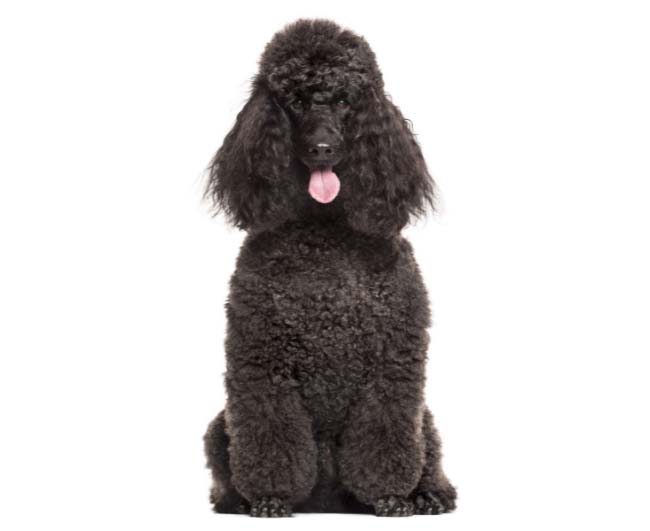
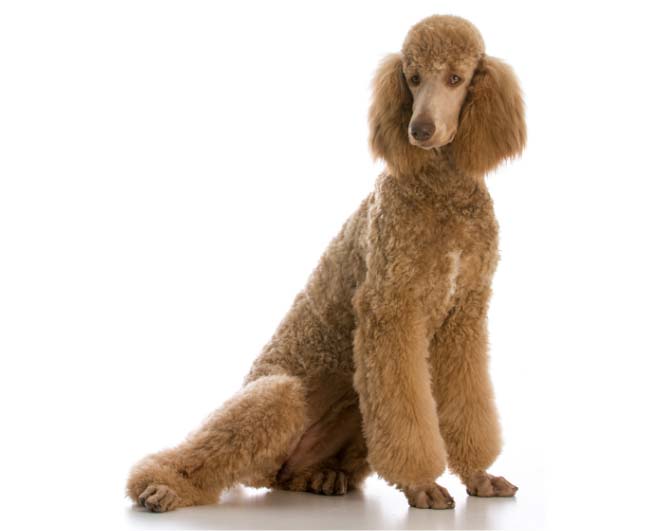

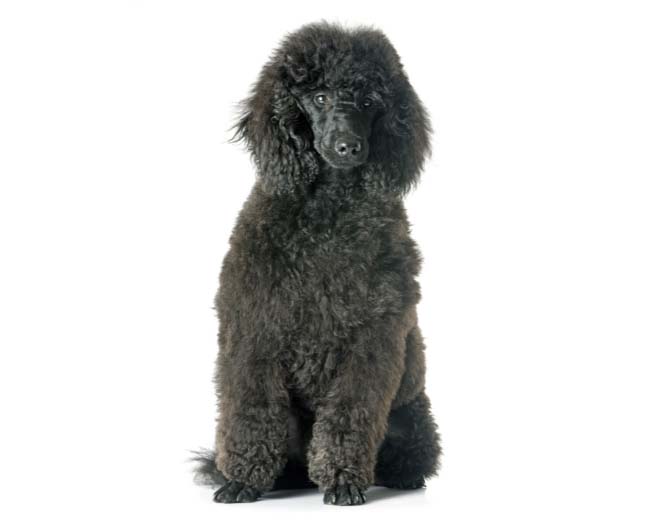
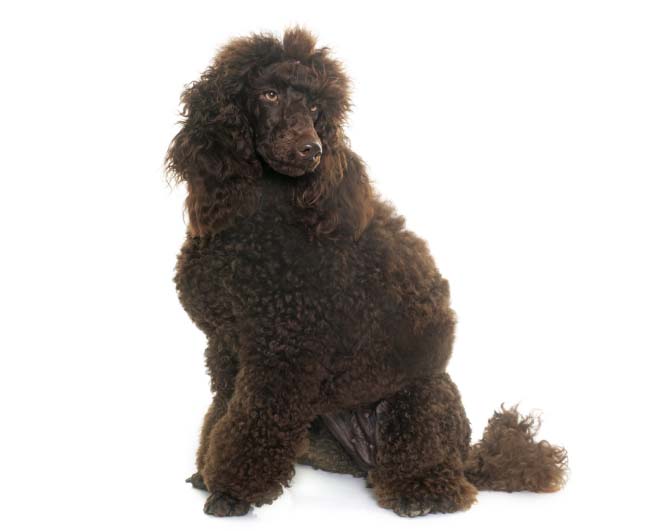
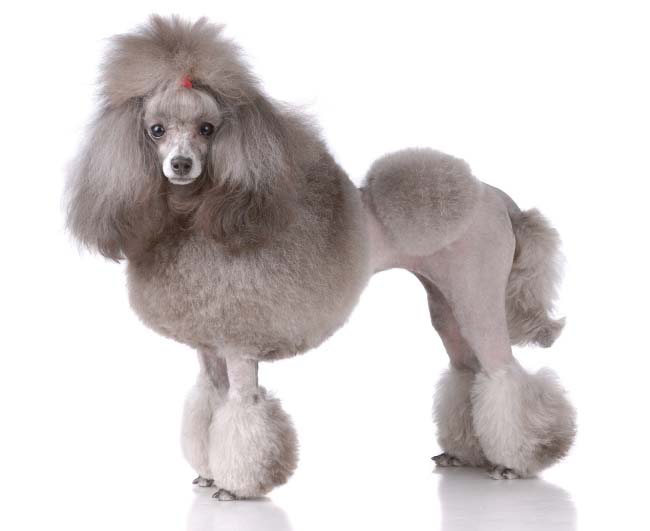
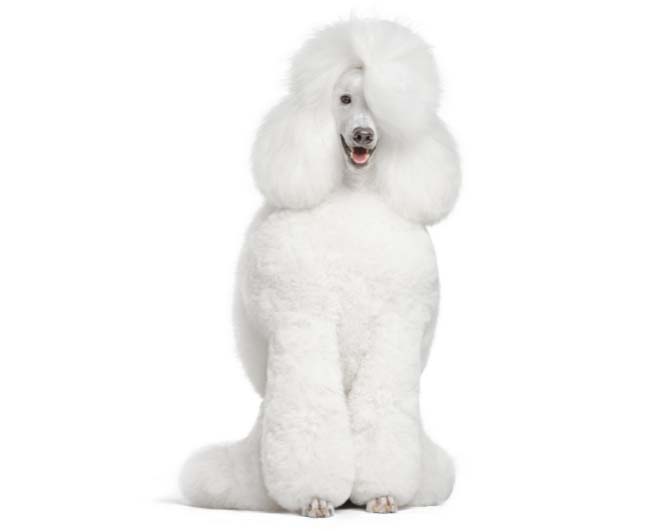

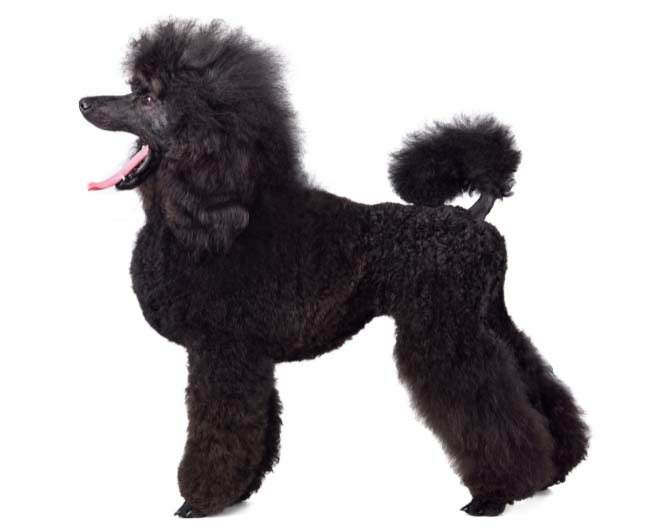
Standard Poodle come in a variety of colours, including Apricot, Black, Blue, Brown, Silver, White, Black, Black.


How much do
Standard Poodle eat?
0.75 to 1.00 cups of food a day

How much
exercise do they need?
20 to 30 Mins

Are they kid friendly? May become impatient with smaller children

Do they need a lot of space? Well suited to both large homes and small spaces
Patellar Luxation
Legg-Perthes Disease
Hip Dysplasia
Heart murmurs
Standard Poodles are recommended to be fed two meals a day. Their diet should have high protein as well as good sources of fat. Treats can be an essential aid in training as well, but giving too many can cause obesity.
Some dogs are vulnerable to being overweight, so keep an eye on their calorie intake and weight. Provide them with clean and safe water at all times. If you have any questions about your dog's weight or diet, consult your veterinarian
Standard Poodle tends to be very light shedders. This makes them suitable for dog owners who have sensitivity to fur. Occasional baths and weekly brushings with a horsehair mitt or de-shedding glove to pull away dead hairs will help to keep him in beautiful condition.
Grooming them does not require much work. Clippers or a combination of clippers and stripping (a method in which the coat is thinned and shortened using a sharp, comb-like tool called a stripping knife) can be used to trim their coat. If your dog's nails don't break off naturally, trim them once or twice a month to avoid painful tears and other issues.
Check their lips, ears, nose, throat, eyes, and feet for sores, rashes, or symptoms of illness such as redness, tenderness, or inflammation. Ears should have a pleasant odour and be free of wax or gunk, and eyes should be clean and free of redness or discharge. Make grooming a positive experience filled with praise and rewards, and you'll lay the groundwork for easy veterinary exams and other handling when he's an adult.
A good amount of healthy exercises are needed for Standard Poodle, far more than for the average dog. Besides brisk walks, try to give your dog some time to run around a fenced yard off-leash. They love participating in obedience, agility, and rally competitions. It is best practice to plan their exercise activities to keep them interesting for your dog.
Scheduled six-monthly health check visits with your vet are important to ensure they are healthy and happy throughout all life stages. In these annual visits, your vet will complete a physical examination, take your dog's temperature and check their heartbeat, among other things.
Routine maintenance for your dog gives you a chance to track your dog's growth and development, discuss any concerns with your vet, and form a key part of preventative care.
Standard Poodles make excellent family dogs because they are fun, energetic, intelligent, and easy to train. They thrive with plenty of mental and physical exercise and prefer to spend the majority of their time with others. Socialization should begin at a young age and should include other people, other pets, and the grooming routine.
Standard Poodles are extremely trainable. They recognize patterns quickly and don't require much motivation or reward other than treats. They are natural learners, which makes for enjoyable canine training sessions for both them and their owners. It's best to get them into a puppy training class by ten to twelve weeks of age.
Standard Poodles are generally calm and accepting of other domestic pets. They enjoy making new friends and playing with them, especially when they are properly socialized at an early age. A play-date with another dog of the same breed is good company for them and will make them get enough physical activity.
Here are some of the breeders who we work with as part of our breeder awareness program.
They are invested in ensuring the longevity of the breed and that new owner become responsible Affenpinchers owners.
Affenpinchers who are friends of Petsy





Enter your email in the form below and we will send you the full report as a pdf directly to your inbox.
Don’t worry, we hate spam too – read our privacy policy
Find the right level of insurance for your needs our customised quote takes less than a few minutes to complete.
Standard Poodles are recommended to be fed two meals a day. Their diet should have high protein as well as good sources of fat. Treats can be an essential aid in training as well, but giving too many can cause obesity.
Some dogs are vulnerable to being overweight, so keep an eye on their calorie intake and weight. Provide them with clean and safe water at all times. If you have any questions about your dog's weight or diet, consult your veterinarian
A good amount of healthy exercises are needed for Standard Poodle, far more than for the average dog. Besides brisk walks, try to give your dog some time to run around a fenced yard off-leash. They love participating in obedience, agility, and rally competitions. It is best practice to plan their exercise activities to keep them interesting for your dog.
Standard Poodles make excellent family dogs because they are fun, energetic, intelligent, and easy to train. They thrive with plenty of mental and physical exercise and prefer to spend the majority of their time with others. Socialization should begin at a young age and should include other people, other pets, and the grooming routine.
Standard Poodles are generally calm and accepting of other domestic pets. They enjoy making new friends and playing with them, especially when they are properly socialized at an early age. A play-date with another dog of the same breed is good company for them and will make them get enough physical activity.
Suite 58, Mezzanine/388 George St, Sydney NSW 2000
Petsy Pty Ltd (ABN 54 633 343 058, AR 1277359) (‘Petsy’) distributes and promotes Petsy Pet Protection Plus (formally Petsy Pet Insurance), Petsy Puppy Protection Plus and Petsy Kitten Protection Plus as an authorised representative of Knose Financial Services Pty Ltd (ABN 38 620 795 735, AFSL 536651) trading as ThePetInsuranceCompany.com.au (‘ThePetInsuranceCompany.com.au’). ThePetInsuranceCompany.com.au is an underwriting agency acting under a binding authority as an agent for the insurer; Pacific International Insurance Pty Limited (ABN 83 169 311 193) (‘Pacific) in relation to Petsy Puppy Protection Plus and Petsy Kitten Protection Plus policies and Petsy Pet Protection Plus policies from 01 March 2023 or have an anniversary renewal date from 18 March 2023, and the Australia branch of Allied World Assurance Company, Ltd (ABN 54 163 304 907) (‘Allied World’) in relation to Petsy Pet Insurance policies purchased between 17 February 2022 and 28 February 2023 (inclusive) or renewed between 01 March 2023 and 17 March 2023 (inclusive). In all aspects of arranging this product, Petsy and ThePetInsuranceCompany.com.au act as an agent of Pacific/Allied World (as the case may be) and not as your agent. Any advice contained in this email is general advice only and has been prepared without taking into account individual objectives, financial situation or needs and you should consider the appropriateness of any such advice, the Product Disclosure Statement (‘PDS’) and the Target Market Determination (‘TMD’) available via http://www.petsy.com.au or by calling 1300 952 790 before making a decision to acquire, or to continue to hold, the product. Terms, conditions, limits and exclusions apply. Please refer to the PDS.
© Copyright 2024 Petsy Pet Insurance
During the application process You will be provided with the option to include Optional Extra Benefits that cover certain conditions and Treatments which are not otherwise covered under the Policy.
The Optional Extra Benefits are:
Alternative Therapies, Behavioural Problems, and Dental Illness.
Examples of Alternative Therapies: Acupuncture, physiotherapy, hydrotherapy
Examples of Behavioural Problems: Excessive licking, fur pulling, pacing and destructive
chewing.
Examples of Dental Illnesses: Dental diseases, gingivitis, periodontal disease.